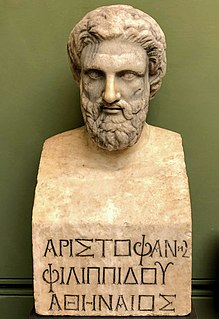A Quote by William Shakespeare
Related Quotes
Think not so much of what thou hast not as of what thou hast: but of the things which thou hast, select the best, and then reflect how eagerly they would have been sought, if thou hadst them not. At the same time, however, take care that thou dost not, through being so pleased with them, accustom thyself to overvalue them, so as to be disturbed if ever thou shouldst not have them.
But the whim we have of happiness is somewhat thus. By certain valuations, and averages, of our own striking, we come upon some sort of average terrestrial lot; this we fancy belongs to us by nature, and of indefeasible rights. It is simple payment of our wages, of our deserts; requires neither thanks nor complaint. Foolish soul! What act of legislature was there that thou shouldst be happy? A little while ago thou hadst no right to be at all.
Antiquity! thou wondrous charm, what art thou? that being nothing art everything? When thou wert, thou wert not antiquity - then thou wert nothing, but hadst a remoter antiquity, as thou calledst it, to look back to with blind veneration; thou thyself being to thyself flat, jejune, modern! What mystery lurks in this retroversion? or what half Januses are we, that cannot look forward with the same idolatry with which we for ever revert! The mighty future is as nothing, being everything! the past is everything, being nothing!
If thy desire to raise thy fortunes encourage thy delights to the casts of fortune, be wise betimes, lest thou repent too late; what thou gettest, thou gainest by abused providence; what thou losest, thou losest by abused patience; what thou winnest is prodigally spent; what thou losest is prodigally lost; it is an evil trade that prodigally drives; and a bad voyage where the pilot is blind.




































